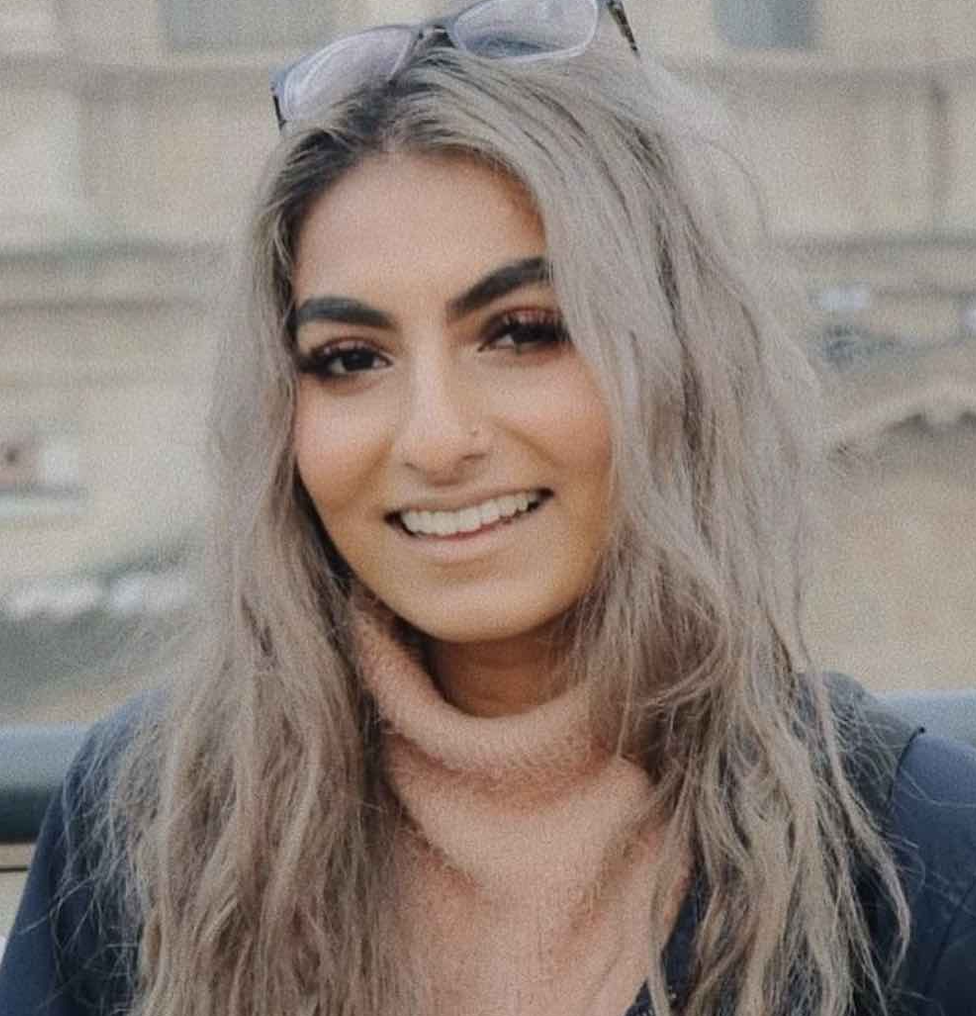I grew up wishing I was white.
I was born in Leicester, which is actually one of the first “super-diverse” cities in the UK, where the majority of residents identify as black, Asian or minority ethnic (BAME). Despite this, I went to a Church of England primary school, sang hymns every morning, and religiously recited the Lord’s prayer after the headteacher lit a candle in assembly. My parents only wanted the best for me, and, education-wise, this was the best primary school around. Actually, I loved my primary school, and I’m not sure I would’ve wanted to go anywhere else, but it is perhaps where I first began to feel a little out of place – too brown for the white kids, and then a bit too white at home.
My parents told me to just pray the way we did at home – “Say ‘Ameen’ instead of ‘Amen’” and so on. I remember once cupping my hands in prayer, as Muslims do, and a kid cruelly slapped my hands. “Why are you praying weirdly like that? You’re doing it wrong” he said.
Then came high school: a snazzy, glass building with a constant ‘Outstanding’ Ofsted inspection rating and none of the religious trappings of primary school. Yet here is where my identity crisis really took hold. Growing up and navigating your ever-changing identity is wearisome anyway, but add a clash of cultures to the mix, and you have quite the battle. My parents weren’t “strict” by Asian standards, but my skirt was always five inches too long, I wasn’t allowed to wear makeup, and I didn’t start removing my leg hair until everyone already knew about my gorilla-like natural state. Also, thin eyebrows were cool back then, and I wasn’t allowed to thread mine. The kids used to follow me around, gesticulating to reflect a monobrow, while shouting “It’s Humeara hair-er!” Charming.
Some other hauntingly mean faves are: “Your eyes are black! You’re a witch,” “My mummy says brown people are bad.”
So, yeah, I grew up wishing I was white. Why couldn’t I have blue eyes and invisible blonde hair like Suzie? Why couldn’t I wear mascara like Beth? Growing up in the UK as an Asian-British Muslim was tough on my sense of identity.
I still get the odd racist comment, however well-intentioned. My mother-in-law once asked me what passport I had, which I found grossly offensive – “Ermmm, British? Where else?” – and she often says things like “Oh I bet you’re not used to people kissing on TV, what with the Muslim TV you must’ve grown up watching!” It’s easiest to just smile and nod.
And don’t even get me started on the rising levels of Islamophobia in the UK. Between April 2021 and March 2022, there were 3,459 police-recorded hate crimes against Muslims, marking a 42% increase on the previous year. Muslims are the most targeted religious group in the UK.
Just last week, I read about a Muslim man being set on fire whilst walking home from a mosque. Last year, my friends and I were attacked with a glass bottle by a drunken white woman calling us “pakis.” Luckily, we escaped unscathed and the woman was arrested. We received a measly Dhs225 by way of compensation, and I don’t know what happened to the woman.
Once, I was on a coach on the way to the airport. I was a young teen – I was younger than 14 – and a lady asked if she could borrow my phone. I of course obliged, and she proceeded to explain: “Thank you so much! I just need to message my sister so that she’s there when we arrive. I feel so unsafe here. There are Muslims everywhere! Where I’m from, we have guns to protect ourselves from them.”
She got more and more animated as she began talking about her hatred for us, for me – waving my phone around in the air as she did so. The irony of her using my phone was not lost on me, and I almost said something, but my mum told me to be quiet. That was the first time I realised: maybe it’s a bad thing to be outwardly Muslim. Maybe it’s a bad thing to admit it. Maybe it’s a bad thing to talk about it.
Throughout my life, I’ve done multiple things – anything – to shed my “brownness”. I set my name to “Frankie” on Facebook because it sounded whiter; I banned my mum from sending me to school with curry in my lunchbox; and later, I started wearing green contacts and dying my hair blonde in a bid to look racially ambiguous. Even now, I can’t wait to take my partner’s English-sounding surname, but I’m trying to be better.
So, when I saw the Ramadan lights up in central London for the first time ever, I was in awe, especially what with the ongoing spew of hatred and uncertainty surrounding not just Muslims, but BAME citizens and migrants; lest we forget the new Illegal Migration Bill 2022-23, which was just introduced in the Commons on March 7th.
Though a few lights won’t actually change anything, for me they symbolise hope – hope for the future of those who don’t fit the cookie-cutter mould, and hope for British Muslims who don’t feel safe in their own country.
These lights are a reminder to me: it’s okay to have a messy identity; it’s okay to accept all parts of myself; I can be British and Muslim and Asian! Who cares?
I see the lights as a public “F you” to Islamophobes, and as an invitation to celebrate each other in peace. The lights are as metaphoric as they are literal; hopefully setting a precedent and lighting the way for a better, more accepting future.









